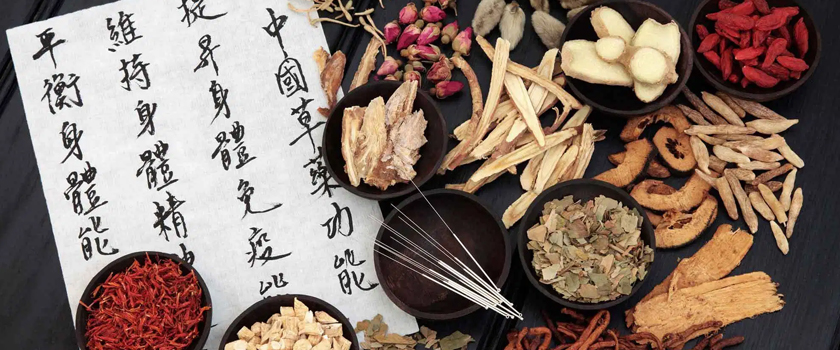According to the Chinese medicine philosophy, most common colds are caused externally by Wind which is one of the “six excesses” of external environmental causes. And the disease can be classified into two types, Wind-Cold and Wind-Hot, based on the symptoms of the patient.
The essence of Chinese medicine is to restore balance to the body. The philosophy holds that there are two kinds of power namely Yin and Yang in a human body. When any one of the two kinds of power grows stronger or becomes relatively weaker than the other, the balance in the body is disturbed, and a disease is developed.
In order to restore the balance more quickly, one can use remedy which has its own character of hot, warm, cool, or cold to eliminate the excess or replenish the deficit. Food, just like medicine, also has specific character and the right kind of food can help us fight diseases enjoyably.
Read Also: Summary of Traditional Chinese (or Chinese Traditional)
Common cold caused by Wind Cold
The symptoms of this type of common cold are fever, chills (worse than fever), fear of wind and cold, inability to get warm, occipital headache (back of head), stiff neck and shoulders, nasal or sinus congestion, cough with clear mucus, white tough, and a slower-than-normal pulse that is more easily felt at the surface.
Diaphoretic (sweating) therapy is especially helpful in this condition, since it warms the body and pushes the pathogen out through the pores.
Here are some easily made medicined diets:
Ginger tea: Clean and shred fresh ginger (15 g). Make into tea with 200 ml boiling water. Add brown sugar (12 g) to taste. Serve hot twice daily. After taking it, go to bed and cover the body properly to let it perspire.
Spring onion porridge: Put the white part of spring onion (cong bai) into the rice porridge, and add in a little bit of rice vinegar when it is ready to serve. This porridge expels the evils and promotes appetite.
Ginger porridge: Cook a pot of porridge, and than put 6 to 8 pieces of sliced fresh ginger into the porridge. Cook 15 more minutes before you eat it.
Five-gods (wu shen) soup: You can guess from the name that this soup has five ingredients: tenuifolia (6 g), folium perillae (6 g), green tea (6 g), fresh ginger (6 g) and crystal sugar (25 g). Put all the ingredients into water, cook 10 more minutes after the water is boiled, and than the soup is done.
Are you looking for Chinese Translation? We are here for your assistance.
Common cold caused by Wind Hot
When the pernicious influence of wind combines with heat, the fever is worse than the chills, and the pulse is faster than normal. The primary symptom is a swollen and sore throat with headache and irritability. If there is a cough, it is usually dry or with occasional expectoration of yellow mucus. The tough is red with yellow coating on it.
Foods like peppermint, chrysanthemum, Chinese box thorn, mung beans, lotus leaves, olives, Chinese spinach and spinach are recommended. They are cold or cool in properties, which help to relieve heat symptoms.
Chrysanthemum and peppermint tea: Boil the chrysanthemum (10 g) and liquorice (3 g) with 400ml of water. When the water is boiled, add in peppermint (3 g) and crystal sugar (15 g), boil for 2-3 minutes. Take the hot tea twice a day. It helps to relieve symptoms like sore throat, nasal congestion, headache and fever that occur in “heat” type flu.
Honeysuckle tea: Boil the honeysuckle (20 g) and green tea (6 g) with 400 ml of water. Add crystal sugar (50 g) when you drink it.
Chrysanthemum and radix scrophulariae tea: Boil 600 ml of water with the chrysanthemum (10 g), radix scrophulariae (15 g), radix ophiopogonis (15 g) and platycodon root (3 g). Cook 15 minutes and then add honey (30 g) into the tea before you drink it. This tea is very effective in moisting your dry mouth and relieve the sore throat.
Take a look at how we helped our client by localizing their project for Chinese language. Click here to read the complete case study









